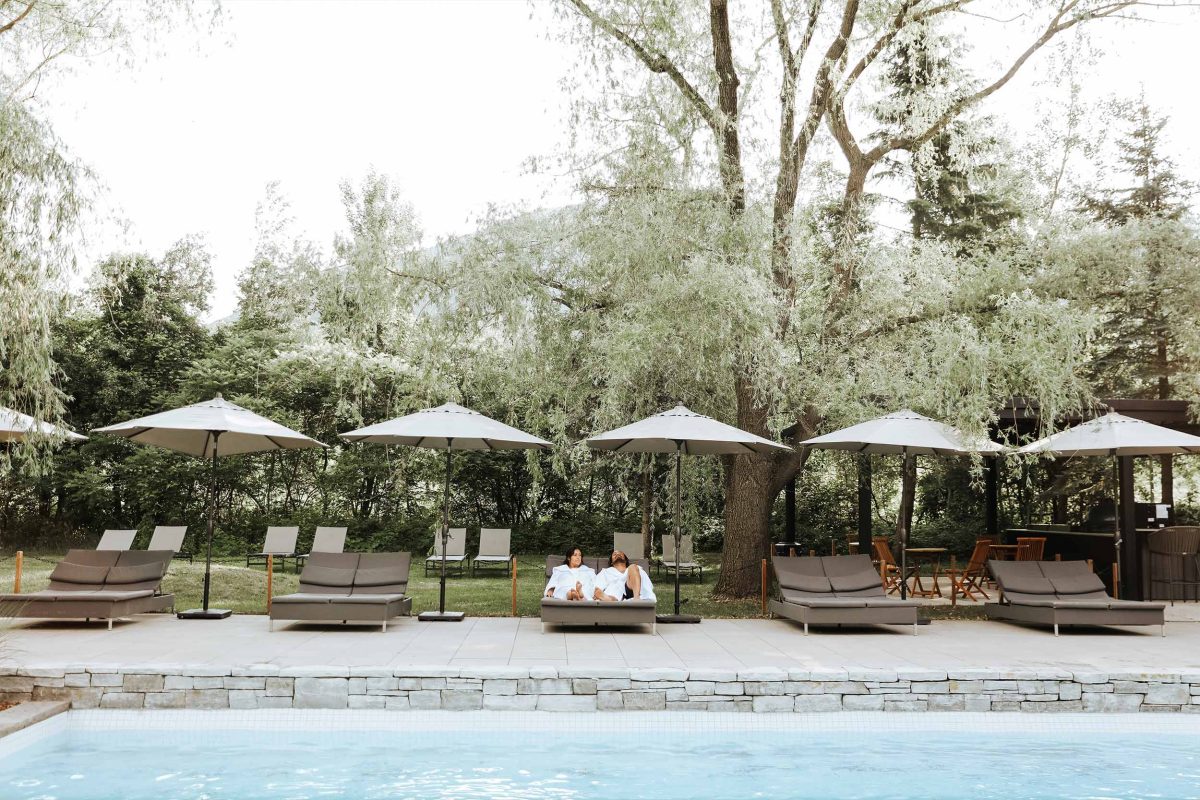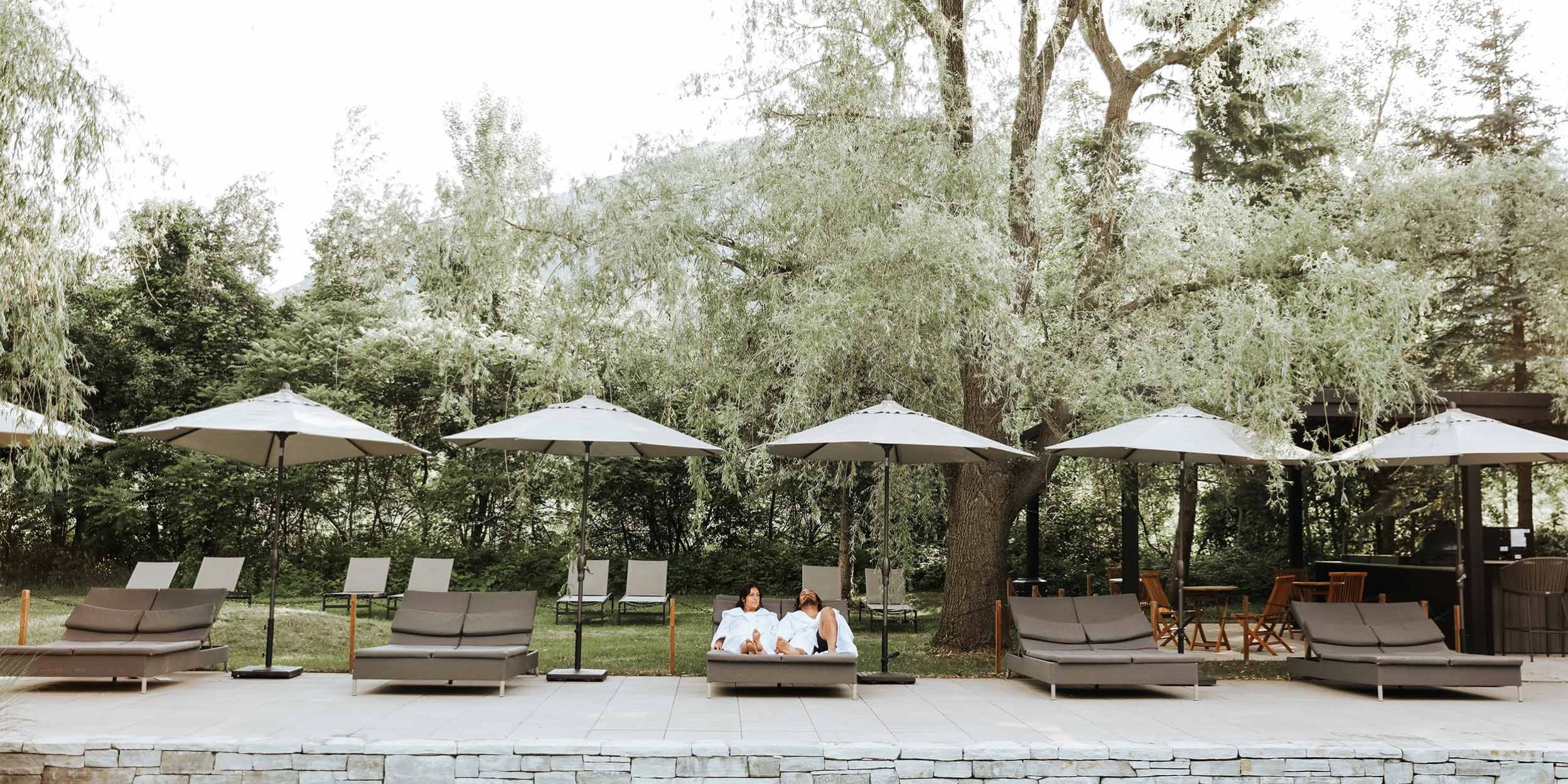Talking about seduction and sexuality in Quebec, even writing a guide on the subject—this is enough to scare many people off, as the theme can be so broad and multi-faceted!
AT The heart of cultural diversity
I founded Le Sofa Sexologique in Montreal in 2019. I work there in private practice with individuals and couples, in collaboration with fellow sexologists. This sexology firm is a place of discussion in which I invite my clients to take stock of their lives, without judgment or pressure.
As a racialized therapist, I also created this space to allow people born into cultural diversity to consult a specialist in a minority position who is likely to understand their reality. Indeed, when I started out in the field, I quickly noticed that a substantial majority of sexologists in Quebec were French-speaking Caucasian women. This finding motivated me to take my place in the field partly in order to fill this void in terms of the representation of cultural minorities. Over the years, I have been able to support hundreds of cross-cultural couples, as well as immigrants.
These days, in addition to my practice at the firm, I give confer- ences at universities to international students and at community immigration organizations to help newcomers understand the sociosexual codes specific to Quebec.
Even after travelling to around thirty countries and meeting people from different backgrounds, the discussions that I can have across the province continue to show me the depth and beauty of the cross-cultural experience.
I have been able to draw some fascinating lessons from this, which should certainly not be confused with potential generalizations about certain cultures. In this article, I invite you to take a benevolent look at the stereotypes present in our societies in order to deconstruct prejudices together. Diversity, both cultural and societal, is a wealth that should not be taken for granted.

Sexual stereotypes and gender quality
According to the sexual stereotypes that have long prevailed in our societies and that continue, to different degrees, to influence our thinking, women are supposedly better at raising children, gentler, more emotional, and flightier. Men, on the other hand, are often seen as providers, natural leaders, and handy, athletic, and phlegmatic people.
Sexual clichés leave no room for uniqueness, since they lock us up in well-defined boxes. In Quebec, we are increasingly trying to get rid of these rigid frameworks, and certain newcomers are sometimes surprised to see a bearded man wearing nail polish, or to learn that a petite woman like me was once a soldier.
Although gender equality is a clear goal of society in Quebec, many will tell you that it has not yet been achieved and that there is still a long way to go. Nevertheless, the situation facing women here remains better than in some other nations. Many immi- grants (men and women!) are aware of this, and even go so far as to think that women in Quebec are superior to men. This thought can be extremely destabilizing when your culture of origin limits the role of women.
During one of my conferences, a North African man summed up this sentiment very well: “Here, I came to understand that it’s best to address others as if everyone were gender-neutral. The way I speak to a woman shouldn’t be different from the way I address a man. As simple as this may seem, it’s new to me. In Morocco, our way of being and expressing ourselves is certainly different in the presence of a woman.”
seduction
Adherence to sexual stereotypes reveals itself especially in the way we approach people. During conferences, the questions I receive most often concern social interactions, whether they are friendly, professional, or romantic. “How do I seduce a man or woman in Quebec? How do I differentiate a friendly interaction from a romantic interaction? Why can men in Quebec seem so meek during seduction, and women in Quebec so direct?”
However, it is difficult for me to answer them clearly, since we are talking about unwritten or implicit social codes.
The general idea that I try to convey, rather, is that in Quebec, unlike in other, more traditional rules of conduct, women and men can play a passive or active role when they want to seduce someone. Women can make the first move (active role) without being seen as women “with loose morals.” Men can play the passive role and let themselves be seduced without their virility being called into ques- tion. If you come from a country where gender stereotypes dictate your ways of approaching others (the man must make the advances and the woman must be seduced), dating in Quebec can upset all the rules of the game to which you have been accustomed for decades!
The setting is also an important point in terms of seduction. In Quebec, we are generally more inclined to seduce and let ourselves be approached in well-defined contexts: at a bar, a nightclub, a happy hour, a party with friends, a festival, even a conference, but not in a line for a bus, at the gym, at work, or when we are walking down the street. Some cultures make absolutely no distinction: you can hit on strangers on the sidewalk, and it is normal to do so. A woman from Cameroon explained to me that it had taken her a long time to understand that the fact that she did not often get hit on here did not call into question her powers of seduction, and that it was simply a matter of habit.
The most common method of seduction in some countries might even be considered sexual harassment here. In Quebec, if someone hits on you and you have indi- cated verbally or non-verbally that you are not interested, the other person must respect your refusal. In other cultures, the woman must say “no” to avoid looking like an “easy woman,” and the man must insist to demonstrate the seriousness of his advances. Part of my work therefore involves helping people understand that seduction is a dynamic exchange between two people, a process that may evolve quickly, and during which everyone must have fun, like a tango.
In some cultures, the concept of dating simply doesn’t exist. You start by getting engaged, and this engagement period allows the peo- ple to get to know each other. If the rela- tionship doesn’t work out, the engagement is broken. In Quebec, this phase usually takes place during dating, so it doesn’t surprise me to hear sometimes that Quebecers change partners as often as they change their socks!
In other cultures, the concept of marriage for love is seen as a bit of an immature fantasy; transactional marriages are much more common. Let’s be clear: all relation- ships are transactional on some level, even here. However, in some countries, this level is high, and this reality is acknowledged and accepted; these are unions where social status, money, the roles of the partners, and the personal sacrifice of desires and individual needs will be emphasized more.
Interculturality
Despite my observations and brief conclu- sions, I know full well that, at the end of the day, relationships and interpersonal dynam- ics aren’t based solely on customs and cul- tural conventions. Individuals are different, of course, as are generations. If we combine the cultural, individual, and generational aspects, therefore, we get an exponential level of complexity! But just because this is a complex phenomenon doesn’t mean that it’s impossible to navigate.
John Gottman, a prominent researcher in relationship and marriage science, has studied and analyzed thousands of couples and affirms that all serious rela- tionships are a cross-cultural experience1. Even when two people are from the same region, they ultimately come from differ- ent families and build a new clan. This gives rise to a new culture, with its own rules, traditions, norms, and celebrations.
Le Sofa Sexologique is a modern firm that offers private consultations in Montreal and virtually. In addition to helping individuals and couples, its mission is to explain sexology, which is the science of sexuality and relationships, to the general public. For their part, companies and organizations benefit from conferences on the sociosexual integration of immigrants, as well as conflict man- agement, marital satisfaction, and the reappropriation of a healthy sexuality.




